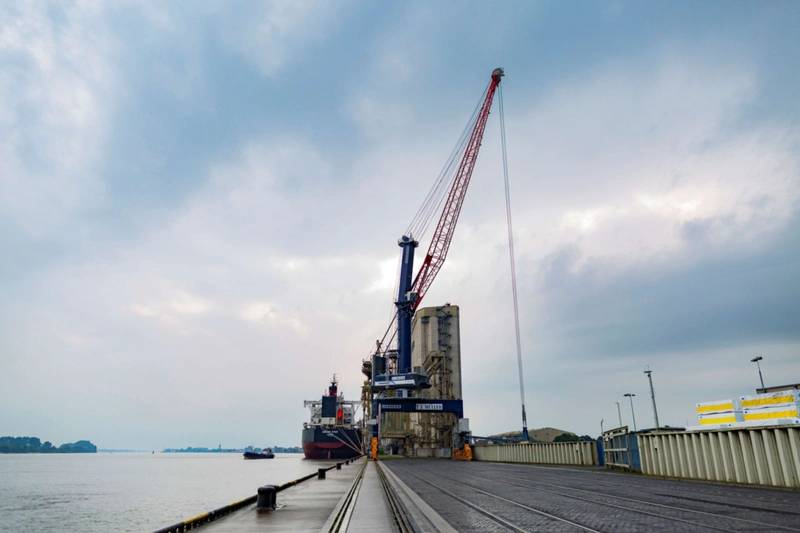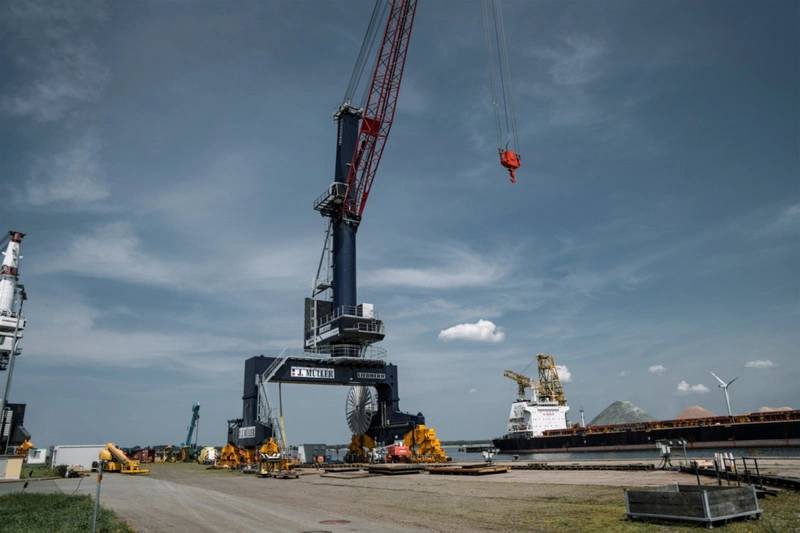Liebherr Delivers Portal Slewing Crane for Cargo Ops at German Port
The Liebherr portal slewing crane of type LPS 600, the first of its kind in Germany, has been delivered J. MÜLLER Weser to enhance its bulk and general cargo operations at the port of Brake.
The project marks the first rail-mounted portal crane at the port of Brake, designed for an extended 650-metre travel path in one direction, with features like larger cable drum and video monitoring at the portal, amongst others.
The LPS 600 features a 61-metre boom, a motorised grab control and an e-drive that ensures optimal handling performance.
The crane can also be used to efficiently handle unitised cargo such as pulp, timber, steel, wind turbines and project cargo. The crane’s reach also allows direct ship-to-ship handling.
The seaport of Brake is located 26 kilometers upstream from the Weser delta. It has modern transhipment facilities, silo facilities and warehouses along a 2.5-kilometre-long quay and a total of seven berths for large ships.
It handles 1,924 ship calls and 7.1 million metric tonnes of a wide range of goods annually on the water side.
J. MÜLLER operates its own seaport terminals in Brake and Bremen for the transhipment and seaport logistics of dry bulk and breakbulk of various sizes.
The storage capacity in Brake is around 1.2 million tonnes, including up to 600,000 tonnes of bulk goods in silos and warehouses and a further 600,000 tonnes of general cargo in covered and open storage areas.
The LPS 600 is designed to meet the specialized demands of bulk and dry bulk handling, offering increased productivity. The e-drive featured in the crane reduces CO2 emissions and energy costs, meeting J. MÜLLER’s environmental and economic sustainability requirements.
“Our investment in the LPS 600 will significantly improve our handling performance for dry bulk materials such as grain, feed, scrap, minerals, and for general cargo such as iron and steel, project cargo, wind turbines, wood, and pulp. The aim is to ensure smoother and more efficient operation and ultimately to increase throughput,” said Jens Ripken, Managing Director of J. MÜLLER.


